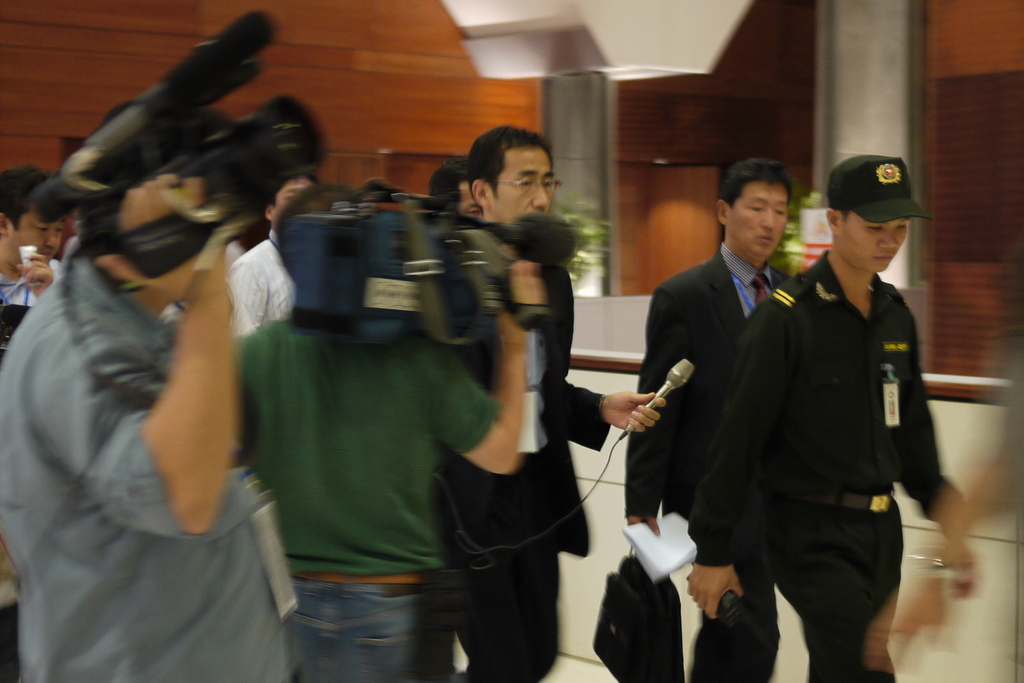The Peninsula
North Korea’s Problem with the Covid-19 Truth

By Mark Tokola
Why won’t North Korea admit that it has any cases of Covid-19? The Ministry of Foreign Affairs continues to assert that North Korea is “a clean land” with no coronavirus infections. This strikes outside observers as extremely unlikely, given the large number of cases in neighboring China and South Korea. Furthermore, North Korea is engaged in a strenuous effort to prevent coronavirus infection from spreading that include: instructions to the public to engage in social distancing and to wear masks; quarantines on foreign travelers and imported cargo; and large-scale disinfection efforts for public transport and public spaces. Kim Jong-un has even ordered the construction of a new hospital for Pyongyang that is supposed to open in October. Of course, all of these measures are for the purpose of preventing the spread of coronavirus and for dealing with a potential outbreak, but it is hard to imagine that such an extensive effort would be underway in the complete absence of cases. 180 countries and territories have declared that they have cases of Covid-19, why can’t North Korea?
One explanation might be that North Korea as a ‘socialist paradise’ cannot admit to having any problems at the national level. In the past, however, North Korea has been open about having to cope with disasters such as floods and droughts. Indeed, government-directed efforts to overcome natural disasters have been a staple of North Korea propaganda.
In March 2019, North Korea appealed to the United Nations for food assistance because poor harvests had created a shortage. The appeal blamed international sanctions and extraordinary climate conditions for having created the shortage, but implicit was an admission that a country that is based on self-sufficiency was unable to feed itself.
More akin to coronavirus, North Korea admitted in June 2019 that it was dealing with a swine flu outbreak by means of quarantines and miracle vaccines being develop by North Korean scientists. Why is Covid-19 different? In the midst of a national campaign to direct the public to act in ways to prevent coronavirus from spreading, it would seem that announcing some number of cases might encourage more public awareness and caution.
One explanation for North Korea continuing to assert the implausible may be that it wants to draw a sharp contrast with South Korea which, although it has earned international plaudits for its effectiveness in dealing with coronavirus, nevertheless has experienced 165 Covid-19 deaths as of April 1, 2020. That is a strikingly low number compared to other countries, but would compare unfavorably to North Korea’s claimed success in avoiding any cases. Another reason might be that the North Korean regime is trapped by its own rhetoric. Having declared itself a “clean land,” wouldn’t admitting that it had Covid-19 cases make it an “unclean land”? The regime is now invested in the claim that its extensive anti-coronavirus program has been a success. It is one thing to admit problems, it is another to admit failure.
However, the most likely explanation for North Korea’s claim to have no Covid-19 cases is that, like all countries, it is facing a catastrophic situation with public health, social, and economic implications that it cannot fully grasp. North Korea is likely to be hit harder by coronavirus than most countries. Its public health system has broken down in recent years and its population is malnourished. It almost certainly has no stock of ventilators and given international competition for those that are globally available, it would be unlikely to be able to obtain them. South Korea and the United States have offered assistance, but to accept help might force North Korea to reveal the extent of its impoverishment. Pyongyang may simply be unwilling to admit having a problem to which it has no solution.
Mark Tokola is the Vice President of the Korea Economic Institute of America. The views expressed here are his own.
Photo from Mac Coates’ photostream on flickr Creative Commons.
